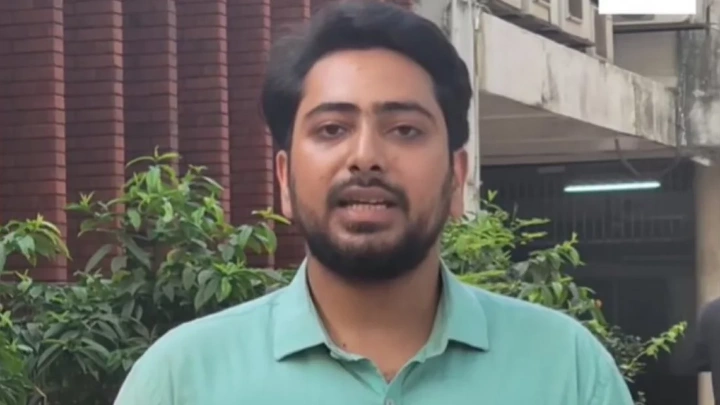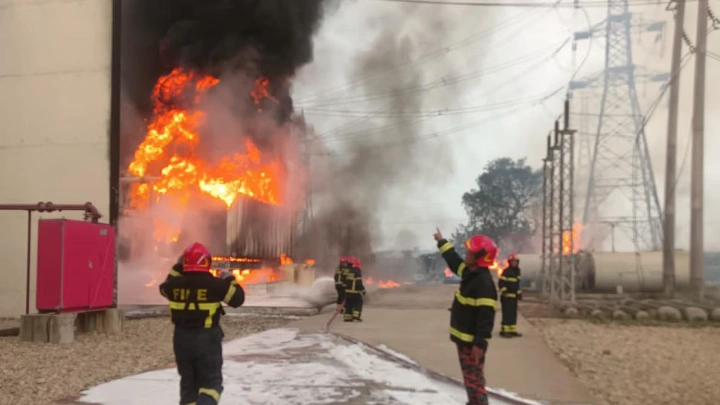ICT Adviser Nahid prioritizes investigation into internet blackout during quota protest
DhakaTribune || Shining BD
Information and Communications Technology (ICT) Adviser Nahid Islam said that after taking office, his first priority would be to investigate the nationwide internet blackout during the quota reform movement.
He also said that this government has been formed with many promises, and without restructuring and reforming the state, elections or any other efforts will not be effective.
He made these comments in response to questions from journalists at the Dhaka University Journalists Association office on Friday night. Below is an excerpt from his interview:
There is talk of students being appointed as assistant advisers in various ministries. How will this be implemented?
This revolution was driven by students. We value their experience within this interim government. While we also invite experienced individuals to participate, we believe students should take on leadership roles to gain experience and learn.
The students will primarily supervise and raise concerns where necessary. There is ongoing discussion about having a student representative in every ministry.
How long do you expect the interim government to last?
The tenure of the government has not yet been determined. This government was formed with specific promises, and without restructuring and reforms, we will revert to the previous state.
We are preparing proposals for restructuring, and the duration will be determined accordingly. The final decision will be made after discussions with other political stakeholders.
Will you forgive police members who committed injustices, and what are your thoughts on police reform?
The police started working today (Saturday). We decided to visit the Rajarbagh Police Line and engage with them.
Changes have already been made to senior positions within the police force. Actions have also been taken against those who ordered the firing on protesters in different places.
The police themselves are calling for structural reform, and we are considering it. Various governments have used the police for their own purposes, and ultimately, the police institution takes the blame.
This issue may take some time, but currently, we are placing trust in the police and establishing a cooperative relationship with the students.
Was the Anti-Discrimination Student Movement created as a permanent platform, or is it temporary?
Our goals have not yet been fully achieved. The fascist structure still exists in our country, and we have not yet received justice for genocides.
Bangladesh's structure has been somewhat broken, and youth participation is needed to rebuild it. Therefore, the Anti-Discrimination Student Movement will continue its work.
It may be known by another name in the future.
What is your response to the room occupation allegations at Dhaka University by protest activists?
We are currently busy forming the government, taking oaths, and handling other tasks. Committees are being formed in various places under the name of our organization, some of which are not authorized.
We will address this issue once things settle down. We are also considering how to form and authorize these committees. We have always opposed and continue to oppose student politics that serve the purposes of political parties.
We want to reach a final decision on campus politics based on discussions with students and teachers. The Anti-Discrimination Student Movement will act in accordance with that decision.
Why were Nahid Islam and Asif Mahmud chosen as advisers in the new government instead of other coordinators?
Since we need to work in various fields and social arenas in addition to being in the government, the decision was based on where each person can best demonstrate their expertise. This was done through consensus, and there is no room for debate on this matter.
What changes are you seeking in your ministry?
The internet was blacked out to stop our movement, and now I've been given charge of the ICT ministry (laughs).
My first step will be to investigate the reasons behind the internet blackout to fully understand what happened. Regarding criticisms related to ICT—such as wiretapping and the Digital Security Act—I will work to address these issues.
Is there a plan to offer jobs or financial aid to the martyrs' families from this movement?
We are considering financial support for the families of the martyrs and the injured. A complete list is needed for this. Although it may stem from a place of sympathy, an official and comprehensive list will be prepared.
Will the list include only students, or everyone who has been martyred?
The list will include students, relevant martyrs, and the injured. Everyone who has made sacrifices in this movement will be included.
Will you enter national politics or form a national political party?
We have already entered national politics. The situation will determine whether we formally announce a party or not.
There are many social issues we need to work on now. Students should focus on their own development, and if the people desire, decisions will be made accordingly.
The young leadership that has emerged from this movement is certainly capable and prepared to lead the country.
What is your ultimate goal?
Our ultimate goal is to rebuild Bangladesh based on the promises that led to the uprising, to ensure justice, security of life, and to prosecute crimes of genocide and fascism.
We aim to re-establish democracy in Bangladesh through a fair election.
Shining BD






















